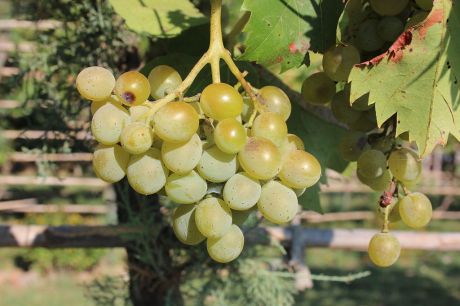The science of ripening grapes

Trauben_an_einer_Rebe_in_Fushe_Kupe
By Usien (Own work) [GFDL (http://www.gnu.org/copyleft/fdl.html) or CC BY-SA 3.0 (http://creativecommons.org/licenses/by-sa/3.0)], via Wikimedia Commons
Researchers have discovered new molecular signals of ripening in grapes and taken steps towards understanding how different genes control this process.
Grapes are an important crop in Europe both as fresh produce and for
winemaking, and the ripening process is key to making good wine. The
ripening process, called veraison, is a complex one, involving a number
of different genes.
The EU-funded GRAPERIPE (The role of ethylene and of ERF gene regulators in the grapevine berry ripening) initiative is studying two proteins termed ethylene responsive factors (ERFs) that switch grape-ripening genes on and off.
Researchers have studied a number of grapevine cultivars, including some genetically modified strains that overexpress these ERF proteins. In particular, researchers focused on ethylene gas emission in different grapevines.
GRAPERIPE showed that in both Pinot Noir and Chardonnay grapes, there is a peak in ethylene production 10 days before grapes start to ripen. Ethylene gas is a common ripening agent in many fruits, but the role of ethylene in veraison is not clear.
Work is continuing to physically and genetically characterise the genetically modified grapevine strains. Lastly, researchers are comparing grapevine and melon genetics to see which genes are important in veraison.
When complete, the results of GRAPERIPE will be useful for plant scientists, breeders and farmers alike.
published: 2016-01-21

